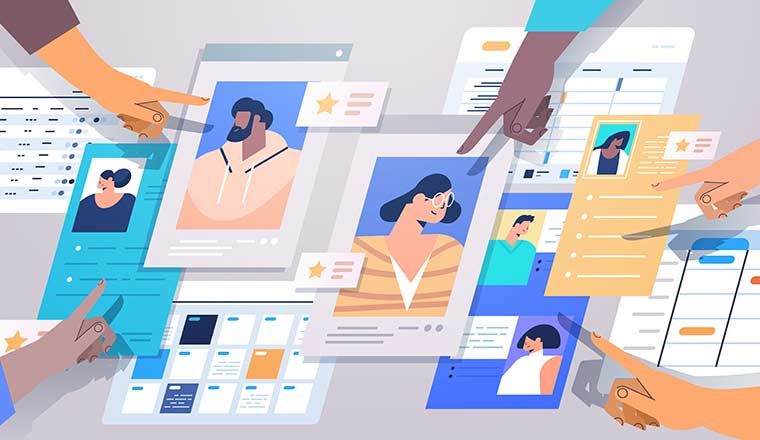The experience of walking into a store and being greeted by a salesperson who seems to know exactly what you need has long been viewed as the pinnacle of personalised shopping. It’s that sense of recognition, of being understood as a customer, that creates trust and loyalty.
For a long time, this level of personalisation seemed out of reach for ecommerce, as the digital realm lacked the warmth and familiarity of in-person interactions. However, with significant advances in technology, this once-elusive experience has now been successfully integrated into the digital shopping world. Leading the charge in this transformation are direct-to-consumer (D2C) brands, redefining how personalisation is delivered across online platforms.
Gone are the days of generic product catalogues and one-size-fits-all marketing strategies. Today’s D2C brands are leveraging the power of data analytics, AI, and machine learning to craft bespoke, highly personalised shopping experiences. These experiences mimic the feel of a personal conversation between a customer and a trusted friend, rather than interactions with an impersonal corporation.
In fact, if numbers are to be believed, India’s D2C market is poised for rapid expansion and is expected to reach an impressive $60 billion by FY27, according to a joint report by logistics firm Shiprocket with CII and Praxis Global Alliance. The broader Indian ecommerce industry is projected to grow to $325 billion by 2030, as per investment promotion and facilitation agency Invest India. This growth is fuelled, in part, by the increasingly sophisticated personalisation strategies employed by brands.
Let’s delve into some key ways in which D2C brands are transforming the shopping experience.
Data-driven recommendations
At the heart of personalisation lies data. By analysing customer browsing history, purchase patterns, and even social media activity, D2C brands can craft product recommendations tailored to individual tastes and needs. This data-driven approach ensures that customers are presented with products they are more likely to purchase based on their preferences.
For example, a travel accessory retailer might suggest suitcases or handbag items that align with a customer’s travel and style preferences. These curated recommendations make the shopping journey more efficient and satisfying, reducing the customer’s decision-making burden.
Dynamic content
Another key innovation in personalised shopping is dynamic content, where a website’s homepage or landing pages adapt to each user. Instead of displaying the same static content to every visitor, dynamic content is shaped by previous interactions, offering tailored product suggestions or customised messaging.
Imagine visiting a website and seeing a homepage that offers discounts on items similar to your past purchases. This level of personalisation helps establish a deeper connection with the consumer, making the online shopping experience more immersive and relevant.
Personalised marketing campaigns
In the age of digital marketing, one-size-fits-all strategies are no longer effective. D2C brands are replacing mass email blasts with hyper-targeted campaigns, where marketing efforts are informed by customer behaviour and preferences. By segmenting customers based on their purchase history, browsing activity, or demographic information, brands can create personalised messages that resonate with specific audience segments.
For instance, a fitness brand might send tailored workout gear suggestions to customers based on their purchase history. At the same time, a food subscription service may offer discounts on items that match the customer’s dietary preferences. This individualised approach increases the likelihood of conversion and enhances customer engagement.
Interactive quizzes and surveys
Interactive tools like quizzes and surveys have become invaluable for D2C brands looking to personalise product recommendations. By asking customers about their preferences, styles, or needs, these quizzes create a profile that helps brands suggest the most suitable products.
For example, a skincare brand might use a quiz to identify a customer’s skin type, concerns, and goals, and then recommend a personalised skincare routine. These quizzes are engaging and help brands collect valuable data while giving customers a sense of control over their shopping journey, deepening the brand-customer relationship.
Loyalty programmes with a personal touch
Loyalty programmes have long been a staple of customer retention strategies, but D2C brands are taking them to the next level with personalisation. Instead of offering generic rewards, brands are now tailoring their loyalty programs to meet individual preferences. Repeat customers can be rewarded with personalised discounts, exclusive early access to new collections, or custom-tailored offers that match their shopping behaviour.
This approach fosters stronger brand loyalty by making customers feel valued and recognised, encouraging repeat purchases and long-term engagement.
Why personalisation matters
Personalisation is not merely a marketing trend; it has also proven to drive significant business outcomes. Brands that effectively integrate personalisation into their strategies are seeing measurable results, from increased conversion rates to higher customer satisfaction and loyalty.
Higher conversion rates: Personalised experiences increase conversion rates, as customers are more likely to purchase products tailored to their preferences. Personalisation can reduce customer acquisition costs, increase revenues, and improve marketing ROI.
Enhanced customer satisfaction and loyalty: When customers feel understood, they are more satisfied and loyal. Over time, this loyalty can transform customers into brand advocates, driving organic growth through word-of-mouth recommendations.
Transforming shopping experience
The personalisation revolution in D2C is not just about enhancing the customer experience—it’s about transforming the entire shopping journey. By leveraging data and technology, D2C brands are creating deeper connections with their customers, driving higher conversion rates, fostering loyalty, and ultimately, building lasting relationships that benefit both the brand and the consumer.
As the Indian D2C market continues to grow, those brands that prioritise and perfect personalisation will undoubtedly lead the way.
The author is Founder, EUME, a travel lifestyle and accessories brand.
(Disclaimer: The views and opinions expressed in this article are those of the author and do not necessarily reflect the views of YourStory.)









![Read more about the article [Funding alert] Waaree Group’s energy storage arm WESS raises $2M in seed round](https://blog.digitalsevaa.com/wp-content/uploads/2021/03/funding-1615270729201-300x150.png)
